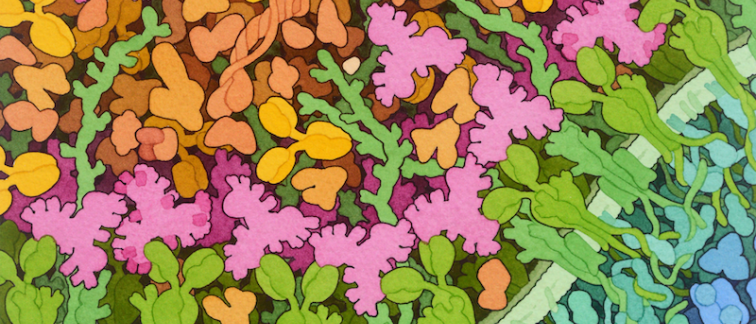Worldwide, an estimated 40 million people live with HIV, two-thirds living on the African continent. In 2023, more than 600,000 people died from HIV-related causes and 1.32 million became infected. There is no vaccine against the world's second most deadly infection – only tuberculosis kills more people. However, researchers from Amsterdam UMC have taken an important step towards reaching the goal of an HIV vaccine. The results of their phase one trial are published today in Science.
"In short, for a preventative HIV-vaccine to work it should induce broadly neutralizing antibodies against all the diverse strains of the virus. We've seen that some people who have been infected with HIV can develop these antibodies but it's been incredibly challenging to trigger the body to produce similar antibodies after vaccination," says Tom Caniels, postdoctoral researcher at Amsterdam UMC and first author of the study.
Together with partners from Rockefeller University, long-standing collaborators at Weill Cornell Medicine and nine other American partners, the Amsterdam-based research team set out to trigger a broadly neutralizing response by developing a vaccine that uses specifically engineered immunogens, in what is known as a germline-targeting strategy.
The development of this innovative strategy is the direct result of the National Institutes of Health (NIH)’s funding commitments to the HIVRAD grant program that supports vaccine design. The team created a vaccine called the GT1.1 Env trimer. The Gates Foundation funded a clinical trial where 47 participants received either a high dose of GT1.1, a low dose or a placebo. The goal was to see whether this priming immunogen could trigger the body's antibody response.
"Across the participants we saw antibody production that tells us we're on the right track. We now know we can target the right cells with atomic precision. The next step is to further stimulate these cells to secrete broadly neutralizing antibodies," says Rogier Sanders, Professor of Virology at Amsterdam UMC and last author of the study.
If the team can reach their next goal it would continue their work to ultimately create a vaccine for HIV, something that Sanders and his team have been working on since the turn of the millennium.
Global Context
These trial results come at a time when many international collaborative studies like this one, supported by the American National Institutes of Health, are facing uncertain futures. Constance Schultsz, Professor of Global Health and Head of Amsterdam UMC’s Global Health department believes that successes like this one should be celebrated:
“This positive outcome is an important step and is the result of the combined ingenuity and perseverance of international researchers over many years. It is a success we absolutely need to celebrate in a time in which global health, particularly in relation to HIV, is affected in many ways. We should make sure and work together that the follow-up studies on this vaccine can move on as planned considering their potential global impact, if proven successful,” she says.
For more information contact Tom Caniels (t.g.caniels@amsterdamumc.nl) or read the scientific publication: Precise targeting of HIV broadly neutralizing antibody precursors in humans.
Acknowledgement artwork: David S. Goodsell, RCSB Protein Data Bank and Scripps Research. Painting created in collaboration with T. G. Caniels in the laboratory of Rogier Sanders at University of Amsterdam and Amsterdam UMC. doi: 10.2210/rcsb_pdb/goodsell-gallery-043.

